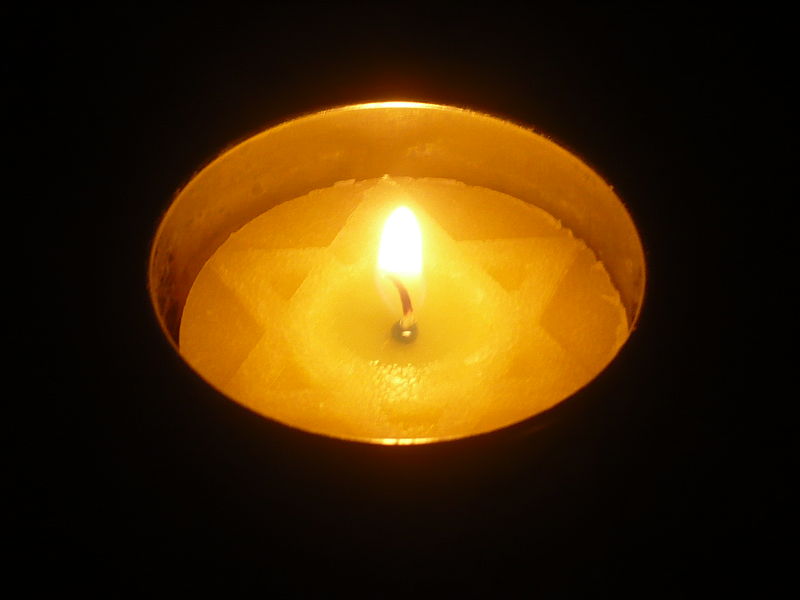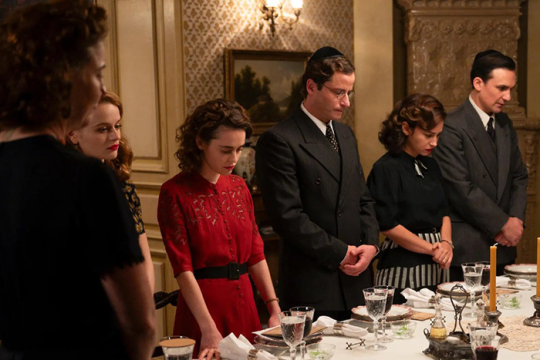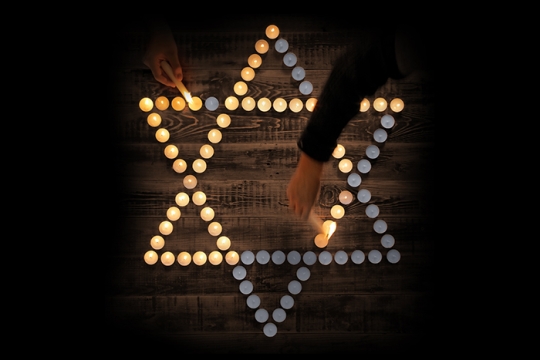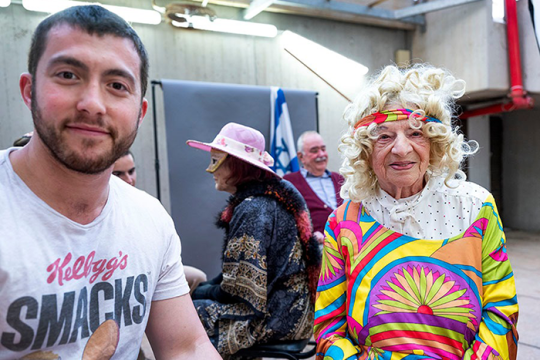
Jews throughout the world have been commemorating the Holocaust annually on the 27th of Nisan since 1953, when the Israeli government inaugurated this day of remembrance and linked to the heroic Warsaw Ghetto Uprising of a decade earlier. The message was clear: even suicidal armed resistance is preferable to going like lambs to the slaughter. For many Holocaust survivors, like my parents, and for those of us in the “Second Generation,” the lessons of that terrible time are more varied and nuanced than simply extolling armed rebellion in the face of a powerful genocidal enemy. And these lessons often come to life though the telling of stories, not only on Yom Yom HaShoah, but at other times of Jewish meeting and celebration.
Such a story emerged only a few days ago at our family seder in Ridgefield, Connecticut. As we read how a furious Moses slew the Egyptian taskmaster for beating a Jewish slave, I thought of an incident involving my father that occurred in 1945. Ahead of approaching Soviet forces, the Nazis evacuated my father, his brother, and other Auschwitz inmates by cattle train. Along the way his brother died. In a panic my father jumped from the train. He was shot through the chest by a guard and left to die. Local Poles carried him to a hospital, where he was patched up and then turned over to the Gestapo. Within days, he was aboard another train headed for the Mauthausen concentration camp, where he was to receive special punishment for having tried to escape. That punishment was administered with gusto by a Gypsy capo who beat him daily. After a few weeks of such treatment, he was tossed onto a pile of corpses and again left to die. That very day, American troops entered the camp and rescued him, along with the other survivors.
Sometime later, my father ventured into the nearby town and began to look at his reflection in a store window. He could hardly believe that he was that skeleton-like figure. As he stood there peering at himself in disbelief, the Gypsy capo approached my father and began to mock him. In a fury, my father pulled out a knife and stabbed his former taskmaster. Suddenly a fugitive, my father, like Moses, had to escape the scene. He spotted a group of repatriated French slave laborers marching by and fell in behind them, following them all the way to Paris. There, without proper food and shelter, he became ill and had to spend the next few years in a TB sanitarium, thus ending his dream of settling in Israel after the war. The lesson of this story, I told my seder guests, is that violent acts, no matter how justified they might seem, can easily derail your life. Because of his anger management problem, Moses never made it to the Promised Land.
My father was more fortunate. Near the end of his life he made a pilgrimage with me to Israel. By then he had learned his lesson. Our itinerary called for an overnight stopover in Frankfurt, Germany. When we arrived at the airport, I felt repulsed by German men in uniform speaking in the language of the killers, and I worried about how my father would react to them. Seeing how agitated I was, my father said soothingly in Yiddish, “Aron, not all Germans were bad.” Many years later, my daughter Mimi decided to take German in high school and signed up for a foreign exchange program that twinned Ridgefield with Uberlingen Germany. It so happened that Vareena arrived at our house in time for Shabbat dinner. It was also my father’s yahrzeit.
As I lit the candle in his memory, his calming words at the Frankfort Airport reverberated: “Aron, not all Germans were bad.” Mimi and Vareena have remained life-long friends. On Yom HaShoah, as on many days of the Jewish calendar, such stories continue to serve as my moral compass.
Related Posts

“We Were the Lucky Ones:” Bringing The Holocaust Out of History Books and Into Our Homes

Remembrance and Beyond: International Holocaust Remembrance Day

